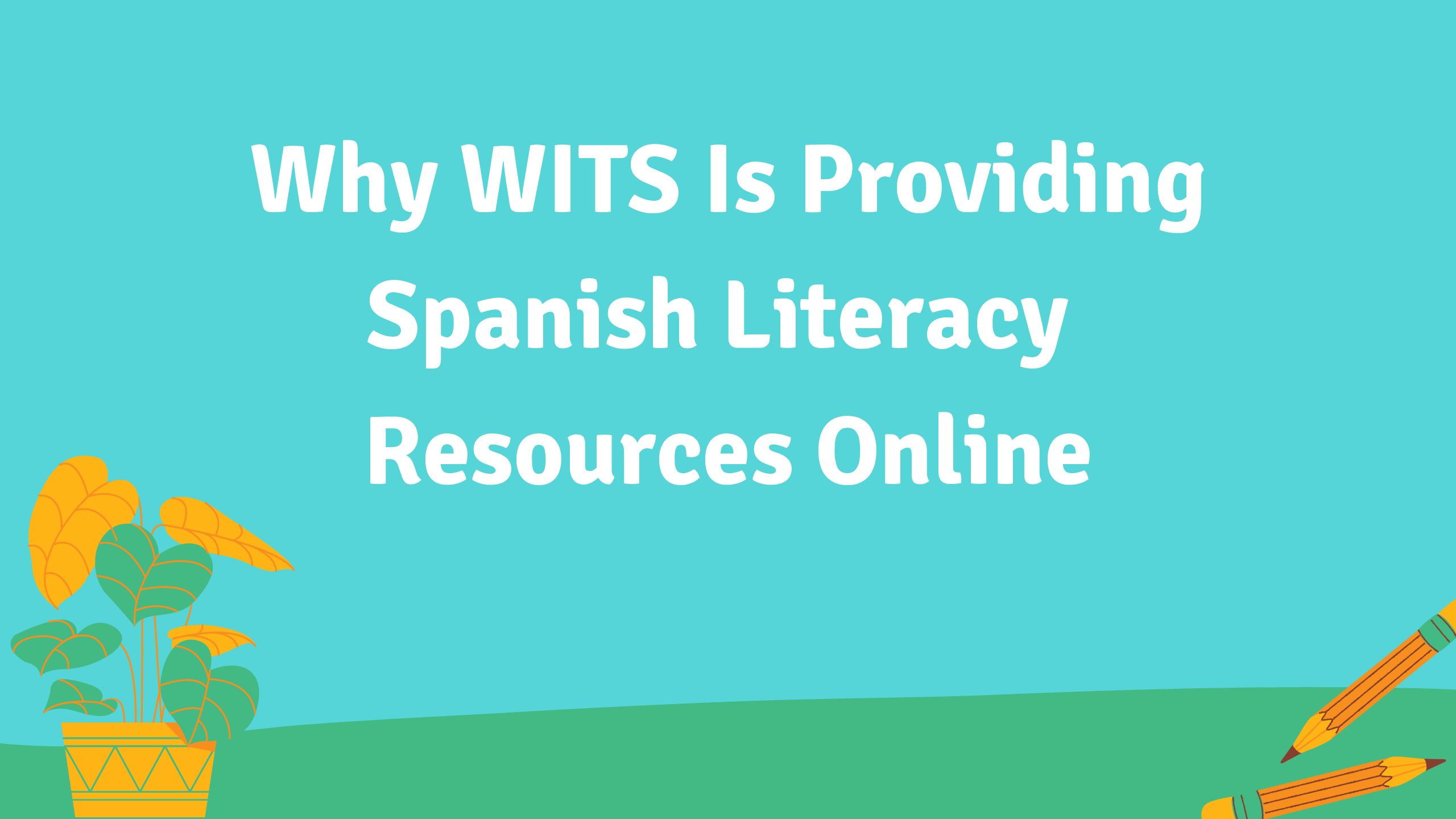WITS has always adapted programming to meet the needs of students and schools: transitioning to online programming has been no different. Back in April, WITS launched the Empowering Readers at Home page on our website to provide literacy resources to encourage and support students and their families even as we were all isolating. This initiative included an option for mentors to send messages to students, activity packets in English and Spanish, and read-alouds in English and Spanish. Providing resources in students’ home language (such as Spanish) not only makes content more accessible to students and their families, but also provides added benefits to their long-term reading progress, and can ultimately have positive benefits spanning the rest of their lives.
Maintaining a Child’s Home Language

Maintaining their home language is important for students for a multitude of reasons. A child’s home language plays a crucial part in the formation of their identity. It serves as a way to connect with their family and community and helps them value and appreciate their culture and heritage. Children gain access to the benefits of being bilingual when they become fluent in English and simultaneously maintain their home language. Being bilingual enhances many cognitive skills in the command center of a child’s brain such as problem solving and planning ahead. Being bilingual helps children develop a strong sense of self-control and discipline. Their cognitive flexibility increases, and they are able to focus on one task and then switch focus to another more easily. Whenever a bilingual child is communicating in one language, they have to actively suppress the other language, something which requires attention and mental flexibility.
The Benefits of Bilingualism

Many studies have shown that you become smarter by being bilingual. An article from The Telegraph notes, “speaking a foreign language improves the functionality of your brain by challenging it to recognize, negotiate meaning, and communicate in different language systems. This skill boosts your ability to negotiate meaning in other problem-solving tasks as well.” And these benefits extend into adolescence and adulthood. Bilingual students tend to perform better on tests and are able to concentrate better than their monolingual peers. Bilingualism improves decision making abilities and memory and enables individuals to become more perceptive of the world around them. This extends into old age, as knowing another language has been shown to stave off Alzheimer’s and Dementia too. Knowing another language even improves one’s ability to understand and utilize English!
Reading In a Child’s Home Language Helps!
More specifically, reading in a child´s home language, such as Spanish, can have benefits for their developmental growth and English reading abilities. Research shows the importance of uninterrupted intellectual development for students. When a student is forced to operate in a language other than their home language before they are fluent in it, they end up functioning at a point intellectually below their age which can result in academic failure. Therefore, allowing a student to speak the language they know best will provide them with the circumstances to work at their real point of intellectual maturity and they will be able to continue their intellectual development unhindered. When a child reads in their home language, their reading skills improve and they learn the process of reading. Ultimately, this will enable them to learn how to read, write, and speak English (or any other additional language) more easily.

Why WITS Is Making Spanish Content
WITS decided to create Spanish learning content on our Empowering Readers at Home page in an effort to create an inclusive space for reading and learning. Among all of the schools that WITS serves in the Chicago Public Schools (CPS) system, approximately 47% of students are Hispanic with almost 19% of students being English Learners. WITS recognizes that students that come from Spanish-speaking households make up the largest demographic that we serve. We want to ensure that they are included in our virtual programming in a way that supports their learning needs and allows their families to engage in this content with them. WITS understands and appreciates the research that has been done that indicates the benefits of reading in a child’s home language on their ability to read in English and hopes to help our students further grow as readers by providing them with Spanish content to interact with. As our Early Childhood Summer Program kicks off, we are proud to be providing matching Spanish content for every day of English content that is being shared on our website. By providing this content in both English and Spanish, we are confident that we will help our youngest learners develop strong pre-literacy skills and prepare for the coming school year and beyond.


